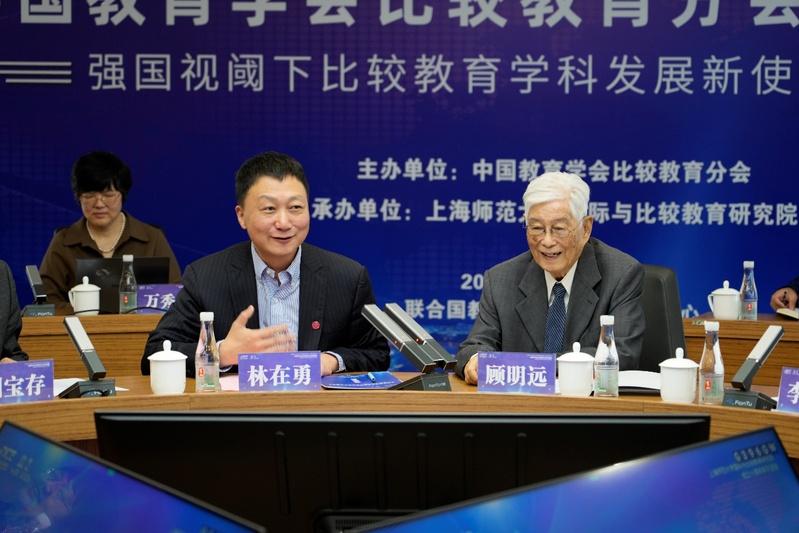On May 8th, the Executive Council of the Comparative Education Society of China, hosted by the Comparative Education Branch of the Chinese Education Society and conducted by the International and Comparative Education Research Institute of Shanghai Normal University (SHNU), was held at the UNESCO Teacher Education Center at SHNU. The theme of this conference is New Missions and Paths for the Development of Comparative Education Discipline under the Perspective of Building a Strong Country. Professor Gu Mingyu, Honorary President of the Comparative Education Society of China, Professor Liu Baocun, Director of the Society, and other vice directors and members of the Society attended the conference.
Before the meeting, President Yuan Wen personally visited Professor Gu Mingyu at the UNESCO Teacher Education Center, expressed gratitude for his historical contribution to the development of comparative education discipline in China, and wished him good health and longevity. Professor Gu Mingyu had a friendly and enthusiastic exchange with Yuan Wen.
At the meeting, Lin Zaiyong, the Party Secretary of the university, delivered a welcome speech on behalf of the school. He recognized and praised the achievements of the research institute over the past decade, and hoped that the International and Comparative Education Research Institute would persistently make new and greater contributions to the development of the university, the development of comparative education disciplines in China, and the further acceleration of the construction of an education powerhouse. He also wished this meeting a complete success.
In the afternoon, at the round-table meeting of the Executive Council of the Comparative Education Society of the China hosted by Liu Baocun, participants engaged in heated discussions around the “Basic Requirements for the Professional Doctoral Dissertations in Comparative Education”. At the same time, they also delved into the characteristics and changes of the discipline of comparative education, believing that comparative education requires proactively absorbing external opinions while also actively defending itself and maintaining its unique style and attributes.




